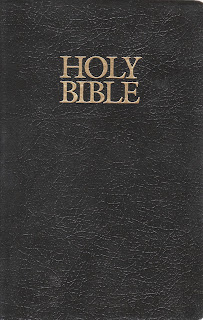(from The Huffington Post
By Madeleine Crum)
Riddles are rooted deeply in the Western literary tradition. The Exeter Book, the largest extant collection of Old English writing, contains punning, rhymes, and riddles in the form of kennings, or compound words serving as a metaphors for a single word ("whale-road" translates to "the sea.")
Some riddles demonstrate the wit of a story's protagonist, or allow a character to escape a dire situation by using their brain rather than their brawn. Other, more puzzling riddles simply remind us that some questions are unanswerable, and while this can lead to hours of frustrated head-scratching, these are sometimes the most pleasantly strange riddles of them all.
Can you solve these nine riddles from literature?
Oedipus Rex by Sophocles
Probably the most well-known riddle in Western literature, the following is asked of Oedipus by the Sphinx outside of Thebes:
Q: "What goes on four legs in the morning, on two legs at noon, and on three legs in the evening?"
A: Man, who crawls on four legs as an infant, walks on two legs as an adult, and walks with a cane as an elderly citizen.
The Hobbit by J.R.R. Tolkien
Gollum and Bilbo engage in a riddling game, and Bilbo's life is at stake. Thankfully, he stumps Gollum with the following riddle, and earns the prize of a safe passage out of the tunnel where he's trapped:
Q: "This thing all things devours;
Birds, beasts, trees, flowers;
Gnaws iron, bites steel;
Grinds hard stones to meal;
Slays king, ruins town,
And beats mountain down."
A: Time.
The Bible
The Bible is filled with riddle-like proverbs, but the best-known is likely the riddle Samson poses to his thirty groomsmen:
Q: "Out of the eater came forth meat and out of the strong came forth sweetness."
A: The honey produced by bees nestled in the carcass of the lion he defeated.
The Merchant of Venice by William Shakespeare
Portia's father devises a riddle that her suitors must solve in order to win her hand in marriage. He arranges three caskets, a golden, a silver, and a leaden, asking them to choose the casket of their liking.
Q: The golden casket reads, "Who chooseth me shall gain what many men desire." The silver: "who chooseth me shall get as much as he deserves." The leaden: "Who chooseth me must give and hazard all he hath."
A: The golden casket contains a skull, and a note warning against judging a book by its cover, and the silver casket represents chasing elusive goals. But the leaden casket contains a note that reads, "You that choose not by the view, chance as fair and choose as true."
Ulysses by James Joyce
Leopold Bloom jests, "good puzzle would be cross Dublin without passing a pub." This witticism isn't the only riddle in Joyce's opus. Stephen Dedalus poses a strange head-scratcher to his students - one with an answer so specific, some critics have said its purpose is to poke fun at the nature of riddles.
Q: "The cock crew, the sky was blue: the bells in heaven were striking eleven. 'Tis time for this poor soul to go to heaven."
A: The fox burying his grandmother under a hollybush.
Alice in Wonderland by Lewis Carroll
The Mad Hatter, who is known for speaking a whole lot of nonsense, asks Alice this famously unanswerable riddle, only to tell her that he doesn't know the answer; he was simply asking.
Q: "Why is a raven like a writing desk?"
A: Depends on who you ask. Sam Lloyd came up with a satisfying response: "Poe wrote on both." Aldous Huxley conjured up an answer as odd as the question itself: "Because there is a 'b' in both and an 'n' in neither."
Emma by Jane Austen
Emma's wit is put on display when she correctly answers a riddle posed by Mr. Elton.
Q: "My first displays the wealth and pomp of kings,
Lords of the earth! their luxury and ease.
Another view of man, my second brings,
Behold him there, the monarch of the seas!"
A: Courtship.
Harry Potter and the Goblet of Fire by J.K. Rowling
When competing in the Tri-Wizard Tournament, Harry must answer a riddle posed, unsurprisingly, by a Sphinx:
Q: "First think of the person who lives in disguise,
Who deals in secrets and tells naught but lies,
Next tell me what's always the last thing to mend,
The middle of middle and end of the end?
And finally give me the sound often heard,
During the search for a hard-to-find word.
Now string them together, and answer me this,
Which creature would you be unwilling to kiss?"
A: A spider.
"The Garden of Forking Paths" by Jorge Luis Borges
Borges's stories are often puzzling in and of themselves, but this particular story contains a more literal riddle, posed by Sinologist Stephen Albert, to explain an ancient labyrinth.
Q: “In a riddle whose answer is chess, what is the only prohibited word?”
A: 'Chess.'










No comments:
Post a Comment